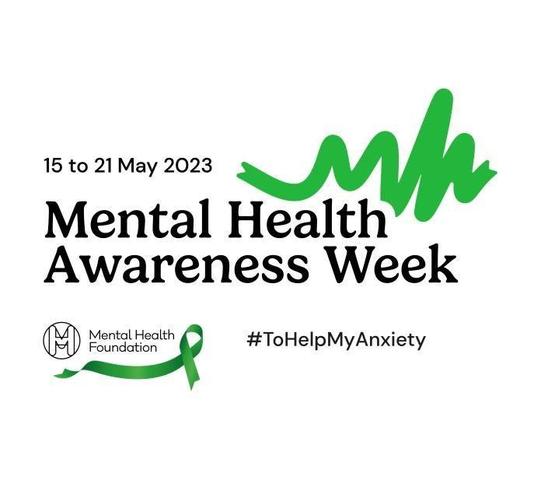Supporting your child with anxiety

Mental Health week is a week organised by the mental health foundation. It will run from 15th to 21st May and the focus for this year is anxiety. Children will feel anxious about different situation and all children will manage this anxiety in different ways. If you’re child is showing signs of struggling with anxiety, here are some tips that may help…
1. Validate their feelings: It's important to let your child know that their feelings are valid and that you are there to support them. Listen to their concerns and let them know that it's okay to feel anxious sometimes.
2. Practice relaxation techniques: Deep breathing, visualization, and muscle relaxation techniques can all help to calm anxious children. Encourage your child to take deep breaths in through their nose and out through their mouth, and practice with them until they feel comfortable using this technique on their own. Children could try ‘finger breathing’ or lazy 8 breathing.
3. Encourage regular exercise: Exercise is an excellent way to reduce anxiety and stress in children. Encourage your child to get outside and play, participate in sports, or take a walk with you. Exercise can also help to improve sleep quality, which can further reduce anxiety.
4. Create a routine: Children who experience anxiety may feel better when they know what to expect. Try to create a daily routine that includes regular meal times, bedtime, and playtime. This can help to provide a sense of structure and security.
5. Help them face their fears: Avoiding the things that make us anxious can make anxiety worse over time. Encourage your child to face their fears in a gradual and supportive way. For example, if your child is afraid of dogs, start by looking at pictures of dogs, then watching videos of dogs, and eventually meeting a friendly dog in a controlled environment.
6. Limit exposure to media: News reports, violent TV shows, and other media can all contribute to feelings of anxiety in children. Try to limit your child's exposure to these things and focus on more positive and uplifting media.
7. Practice self-care: It's important for parents to take care of themselves too. Make sure you're getting enough sleep, eating well, and taking time for yourself. When you're feeling calm and relaxed, you'll be better able to support your child.
Remember, managing anxiety in children takes time and patience. If your child's anxiety is causing significant distress or interfering with their daily life, please come and have a chat with me or your child’s class teacher. There are lots of resources below that will also help too.
Mrs Drake
Mental Health Lead
The invisible string
Ruby's Worry
Ruby's worry by Tom Percival is a great story to read if your child has small nagging worries. And especially if you think your child has a worry but they aren't willing to open up about it. While you read it, you can talk about why Ruby is worried, what that feels like and what Ruby (or your child) could do about it.
Find Your Calm
Find your calm by Gabi Garcia is a wonderful way to introduce mindfulness to children and encourage them to start practising some simple techniques for easing anxiety. It is a really empowering book to read as a parent because it lights the way for talking to your child calmly and effectively about their anxiety and what they can do when they feel panicked or overwhelmed.

If you have a child in year 5 or 6 thenthis book may be helpful. It discusses topics such as; battling stress and anxiety, body confidence, family and friendships, mindfulness and sleep, overcoming failure, movement and creativity.
